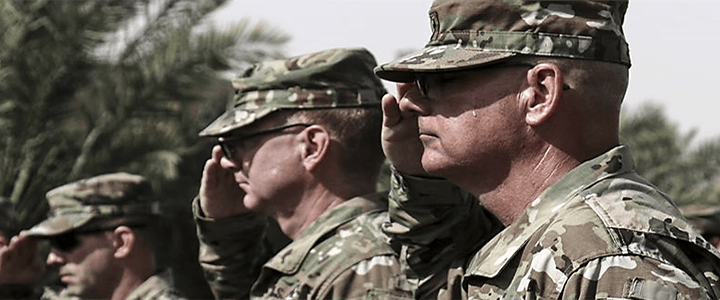The White House’s decision to withdraw half of U.S. forces currently deployed to Afghanistan has raised a valid question: what, exactly, are we fighting for? Like many Americans, this topic came up during my family’s Christmas gathering. As a veteran of the Afghanistan War, it was bound to come up in my house, but the announcement last week means that it’s a topic of conversation at dinner tables in more places than it would have otherwise.
And it made me realize that even among the well-informed, there remains a lingering misunderstanding of why we began fighting there and why, after more than 17 years, we have not stopped.
There’s no disagreement that the war began with the terrorist attacks on September 11, 2001. Al Qaeda’s use of passenger planes as cruise missiles was our generation’s Pearl Harbor, and it stirred a sleeping nation to action. But the assertion, as I hear today, that the war should have ended with Osama bin Laden’s death, is not only simplistic, it is a misreading of the historical record.
When he announced the start of the war, President George W. Bush did speak of the effort in Afghanistan as “carefully targeted.” But the limits to American action were not intended to limit our actions to “getting bin Laden.” They were intended to send a message to the Muslim world that ours was a fight against terrorists, not a new crusade against Islam itself.
“The United States of America is an enemy of those who aid terrorists and of the barbaric criminals who profane a great religion by committing murder in its name,” the president said in his October 7, 2001 address to the nation.
At the same time, the president warned America that the campaign would not be short or easy—or limited to Afghanistan. It’s easy to forget that for the entirety of the Bush presidency, we referred to the campaigns in Afghanistan, Iraq, Africa, the Philippines, and elsewhere as the Global War on Terror. America has a short memory. President Barack Obama dropped the use of the GWOT term in favor of the more mundane “Overseas Contingency Operations,” a term that endures today.
Changing the collective term for the campaigns against international terrorists served ultimately to weaken American focus and resolve. But the mission remains, in Bush’s words (delivered in his October 11 prime time press conference), “a war against all those who seek to export terror, and a war against those governments that support or shelter them.”
That’s far broader than just killing or capturing Osama bin Laden.
WHY WE STAY
That mission took on a different tone when, after the military defeat of the Taliban government, Afghanistan proved incapable of providing for its own security, or to prevent the Taliban insurgency from retaking power. Our efforts have long been, and should continue to be, two-pronged: defeat Taliban fighters wherever and whenever possible, and ensure that the government of Afghanistan develops sufficient capacity to ensure that its rugged and remote soil will never again be a safe haven from which a new version of bin Laden can plan and execute terrorist attacks against the United States.
Bush did say, “This particular battlefront will last as long as it takes to bring al-Qaeda to justice.” He followed that statement immediately with, “It may happen tomorrow. It may happen a month from now. It may take a year or two, but we will prevail, and what the American people need to know is what our allies know. I am determined to stay the course. And we must do so. We must do so. We must rid the world of terrorists so our children and grandchildren can grow up in freedom. It is essential. It is now our time to act, and I’m proud to lead a country that understands that.”
I have argued that it’s okay to negotiate peace with the Taliban. There is no reason why a Taliban movement that renounces violence cannot have a seat at the table or a voice in the future of Afghanistan. For better or worse, the Taliban represent a significant faction of the Afghan people. The current administration is working to achieve that political settlement.
American forces give the Afghan government the space necessary to negotiate that peace. American blood and treasure ought be committed only for noble causes. By some estimates, we have spent more than $1 trillion on this war, and lost more than 2,400 lives.
That’s a heavy price. But the cost of walking away with the job unfinished will be higher. Our decision to abandon Afghanistan after the defeat of the Soviet Union left a power vacuum that the Taliban ultimately filled. We cannot repeat that mistake.




